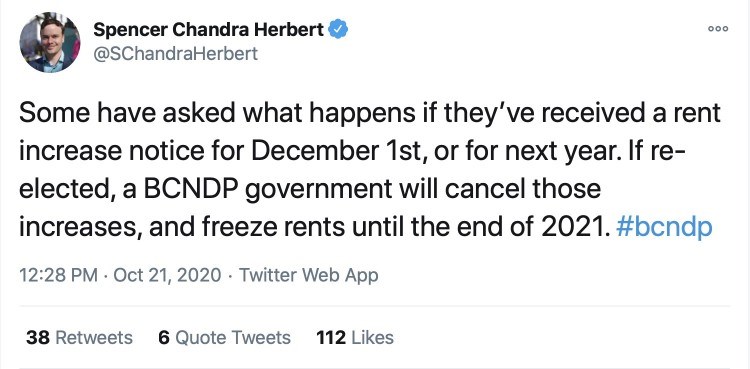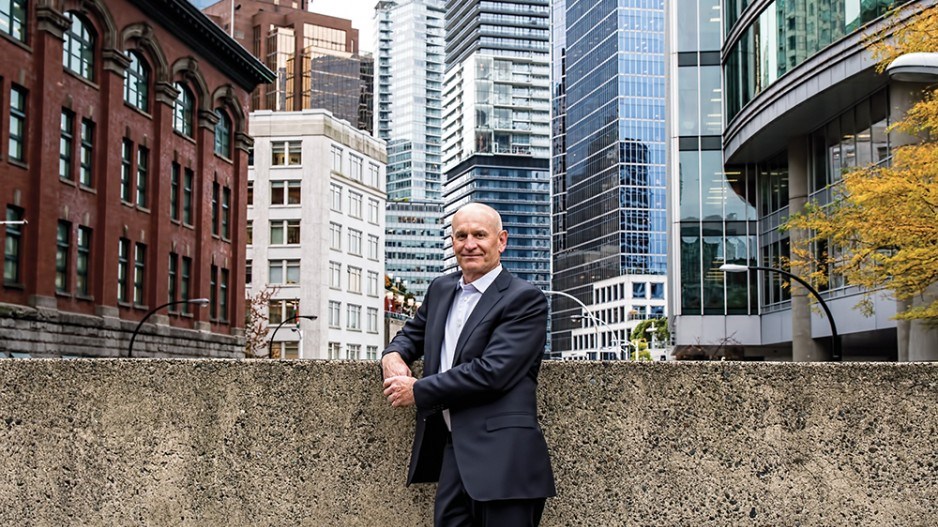The COVID-19 pandemic has shaken up the real estate sector, creating winners and losers and prompting an array of wish lists highlighting uneven levels of damage in different segments of the industry.
While commercial real estate property owners are suffering with low demand for tenants, property values and sales have stayed strong.
On the residential real estate side, tenants are poised to continue enjoying a rent freeze, while investor landlords are frustrated with eroding cash flow.
Developers, meanwhile, are wary of embarking on new projects because they say taxes are crimping demand.
“Office leasing is remarkably slow,” Maury Dubuque, senior managing director of the Vancouver brokerage at Colliers International, told BIV.
“There has been approximately 500,000 square feet of sublease space come back in the downtown core alone. The overwhelming majority of that is from businesses that have 5,000 square feet and under. So it’s the smaller businesses that seem to be shedding, or trying to shed space.”
Dubuque added that investment sales, and the firm’s industrial real estate business, are booming.
That is in part, he said, because investors around the world have trillions of dollars in capital that they are seeking to park in safe environments, and they view Vancouver as a desirable location.
The most pressing overall need for the industry, however, is a more robust economy, and that is unlikely, he said, until there is a COVID-19 vaccine.
Was there much in the victorious BC NDP’s provincial election platform that is good news for developers?
“No, there wasn’t,” answered Urban Development Institute Pacific Region president and CEO Anne McMullin.
She said provincial government taxes, such as the speculation tax, which is levied on empty homes, and the foreign buyer’s tax, which requires that foreign nationals pay an extra 20% tax when they buy residential property in certain areas within the province, are lessening demand for housing.
That, in turn, reduces the incentive to develop new projects.
“We told [the provincial government] three-and-a-half years ago that higher taxes will not alleviate high home prices, and they haven’t,” she said.
“They’ve got to get rid of these things like the speculation and vacancy tax, which applies to development land, and additional school tax, which also applies to development land. All that does is increase the overall cost [to develop sites].”
The BC NDP promised in the election campaign to extend a rent freeze on residential properties until the end of 2021.
That freeze had been set to end on December 1.
Landlords who provided tenants with three months’ notice for a rent increase on December 1 will have to cancel that increase, Vancouver Burrard MLA Spencer Chandra Herbert tweeted during the campaign.

(Image: NDP MLA for Vancouver–Burrard, Spencer Chandra Herbert, tweeted during the campaign that not only will the NDP extend its rent freeze for residential properties, it will cancel any increases that have already been issued | Twitter)
Mom-and-pop investors who own and rent condominiums as part of their retirement planning will therefore be dealt a harsh economic blow, said Jennifer Hunt, vice-president of research at the Real Estate Investment Network. Those owners need to be able to raise rents to break even, she added.
“The rent freeze is significant,” she said. “You get municipal taxes going up, and expenses, and whatnot. So that’s a huge challenge.”
One positive thing that Hunt said could come about thanks to an NDP government is that there may be government involvement to wrestle down skyrocketing inflation in strata-insurance rates.
The NDP, during the campaign, floated the idea of a public-insurance option for condominium owners.
Its platform described “closing loopholes in strata insurance and beefing up regulatory powers,” and said that these moves could be followed by further action.
“I don’t like to advocate for government intervention, personally, because I think that that’s a dangerous tightrope to go on, but I do believe that something needs to happen, because you can’t have it so regular homeowners, or investors, have condos with insurance going up 400%.” •




